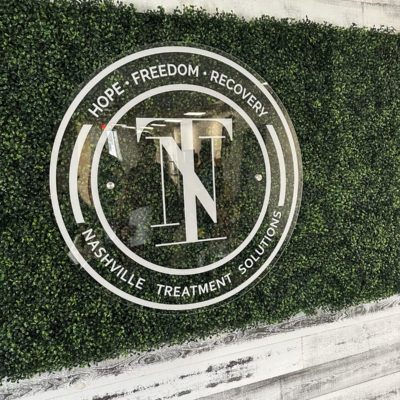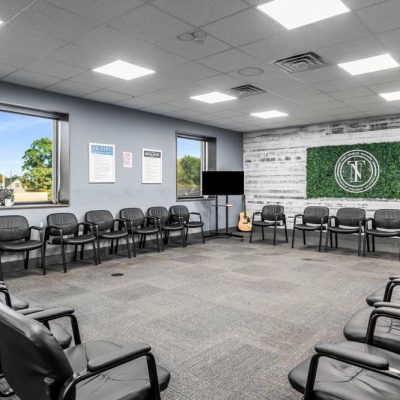At Nashville Treatment Solutions, our premier treatment center offers psychiatry in Nashville to not only address various mental health challenges and dual diagnosis disorders but find ways to overcome them. Our experienced, kind, and compassionate professionals create evidence-based and trauma-informed treatment plans tailored to meet the complex needs of each individual that walks through our doors. Our psychiatric providers will provide comprehensive evaluations, treatment, recommendations, and possible medication management.
Contact us at (615) 234-9425 to learn more about our offerings.
You are not alone. You deserve to get help.
Nashville Treatment Solutions is an industry leader in addiction treatment. Our team of top medical experts specialize in dual diagnosis treatment and are committed to ensuring that each patient is treated as an individual. Call us today, we’re available 24/7.
What is Psychiatry?
Psychiatry is a medical specialty dedicated to the diagnosis, prevention, study, and treatment of mental disorders. These include various maladaptations related to mood, behavior, cognition, and perceptions. As a branch of medicine, psychiatry is uniquely connected to both the biological and psychological aspects of mental health and illness. Psychiatrists, the practitioners in this field, are medical doctors (MDs or DOs) who have specialized training in mental health. They are equipped to understand the complex interplay between the physical and mental aspects of psychological disorders, making them distinctively qualified to diagnose and treat mental illnesses. Their medical background enables them to prescribe medication, a key component in treating many mental health conditions, and to evaluate the physical health problems that could be contributing to psychiatric symptoms.
The scope of psychiatry encompasses various modalities of treatment, including psychotherapy, medications, psychosocial interventions, and others depending on the needs of the patient. At Nashville Treatment Solutions, our psychiatrists often work in collaboration with a team of therapists, case managers and nurses to provide comprehensive care. While psychiatrists can offer psychological treatments, they are also trained to understand the biological foundations of mental disorders, allowing them to employ a range of biological therapies (pharmacological and otherwise) in their practice. Their approach to treatment is often holistic, considering the patient’s physical, emotional, and social needs.
How Does Psychiatry in Nashville Work?
Our Psychiatry in Nashville integrate into various programs like Detox, Partial Hospitalization Programs (PHP), Intensive Outpatient Programs (IOP), evening IOP, and Outpatient Rehab (OP). These programs offer tailored psychiatric care that aligns with each patient’s unique recovery journey, ensuring a comprehensive approach to mental health and substance abuse treatment.
What Disorders Require Psychiatry Services?
Psychiatry services are essential for a wide range of mental health disorders. These include, but are not limited to:
Mood Disorders: These include conditions like major depression, bipolar disorder, and dysthymia. These disorders affect a person’s emotional state, causing persistent feelings of sadness, euphoria, or fluctuations between extreme happiness and extreme sadness.
Anxiety Disorders: This category encompasses disorders like generalized anxiety disorder, panic disorder, phobias, bipolar disorder, and social anxiety disorder. They are characterized by excessive fear, worry, and anxiety that can interfere with daily activities.
Psychotic Disorders: Schizophrenia is the most well-known of these disorders, characterized by distorted thinking, perceptions, and emotions, hallucinations, and delusions.
Obsessive-Compulsive and Related Disorders: This includes obsessive-compulsive disorder (OCD), body dysmorphic disorder, hoarding disorder, and trichotillomania (hair-pulling disorder). These disorders involve the presence of obsessions (repetitive, intrusive thoughts) and compulsions (repetitive behaviors).
Trauma and Stressor-Related Disorders: Post-traumatic stress disorder (PTSD), acute stress disorder, and adjustment disorders fall into this category. They typically occur after experiencing or witnessing a traumatic or stressful event.
How Can Psychiatry Treat Addiction?
The approach in psychiatry to treating addiction is multifaceted, incorporating medication, counseling, and support systems to create a comprehensive treatment plan including the following:
Medication-Assisted Treatment (MAT): Psychiatrists often use medications as part of the treatment for addiction, particularly in cases of opioid, alcohol, and nicotine dependence. These medications can reduce cravings, alleviate withdrawal symptoms, and normalize brain function. For example, Suboxone and Vivitrol are commonly used to treat opioid addiction, while naltrexone and disulfiram may be prescribed for alcohol dependence. These medications are most effective when combined with counseling and behavioral therapies.
Psychotherapy and Counseling: Psychiatric treatment for addiction also typically involves various forms of psychotherapy. Cognitive-behavioral therapy (CBT) is widely used to help individuals recognize and change maladaptive thought patterns and behaviors related to substance use. Motivational interviewing is another approach that enhances an individual’s motivation to change. Group therapy, family therapy, and other forms of counseling can also play a significant role in treatment, providing support, education, and strategies for coping with cravings and avoiding triggers.
Dual Diagnosis Treatment: Many individuals with addiction also suffer from co-occurring mental health disorders, such as depression, anxiety, or bipolar disorder. Psychiatrists are uniquely qualified to address these dual diagnosis cases by treating both the addiction and the co-occurring mental health issue concurrently. This integrated approach is crucial for successful outcomes, as untreated mental health issues can often contribute to substance abuse and vice versa.
Relapse Prevention and Long-Term Management: Psychiatry in addiction treatment also focuses on relapse prevention and long-term management. This includes educating patients about the chronic nature of addiction, helping them develop coping strategies, and encouraging lifestyle changes that support recovery. Ongoing monitoring and follow-up care are essential components of this approach, as they help identify and address potential relapses early.
How Do I Know I Need to See a Psychiatrist?
Recognizing when to seek help from a psychiatrist can be an important step in addressing mental health and addiction concerns. Here are some indicators that it might be time to consult a psychiatrist:
Persistent Feelings of Sadness or Despair: If you’re experiencing prolonged periods of sadness, hopelessness, or feelings of emptiness that don’t seem to go away, it might be a sign of a mood disorder like depression.
Excessive Worry, Anxiety, or Fear: Persistent, excessive worry or anxiety that interferes with daily activities can be indicative of an anxiety disorder.
Mood Swings or Emotional Instability: Extreme or rapid changes in mood, such as intense highs and lows, could suggest bipolar disorder or another mood-related condition.
Changes in Sleep or Appetite: Significant changes in sleeping or eating patterns, such as sleeping too much or too little, or drastic changes in appetite or weight, can be signs of an underlying psychiatric issue.
Difficulty Coping with Daily Life: If you’re finding it increasingly difficult to cope with daily responsibilities, work, relationships, or other aspects of life due to your mental state, this is a clear sign that you might need professional help.
Withdrawal from Social Activities: A noticeable withdrawal from social interactions, hobbies, or activities that were once enjoyable can be a symptom of a mental health disorder.
Substance Abuse: Using drugs or alcohol to cope with emotions, sleep, or to face the day, can be a sign of an underlying psychiatric condition.
What is the Difference Between a Psychologist and a Psychiatrist?
Psychiatrists and psychologists differ mainly in their educational backgrounds, training, and treatment approaches. Psychiatrists are medical doctors (MDs or DOs) who have completed medical school and a residency in psychiatry. They are trained in the medical and biological aspects of mental health conditions and have the authority to prescribe medication. Their treatment methods often include a combination of medication, psychotherapy, and other biological treatments, particularly suited for severe or complex mental health conditions.
Psychologists, in contrast, focus on psychotherapy and counseling. They do not attend medical school and generally do not prescribe medication. Their approach centers around employing therapeutic techniques, such as cognitive-behavioral therapy, to treat conditions that can be effectively managed through psychotherapy, such as mild to moderate depression and anxiety, phobias, and substance use disorders. Both psychiatrists and psychologists play critical roles in mental health care, often working collaboratively to provide comprehensive treatment.
Find Psychiatry in Nashville Today!
If you or someone you know is struggling with mental health issues, addiction, or a dual diagnosis disorder, reach out to our team in Nashville. Addiction and dual diagnosis disorders can feel isolating, however, you’re not alone. We’re here to provide compassionate, comprehensive psychiatric care tailored to your unique needs. Let us help you on your journey to recovery and wellness. Call us now at (615) 234-9071 or verify your insurance today.

















